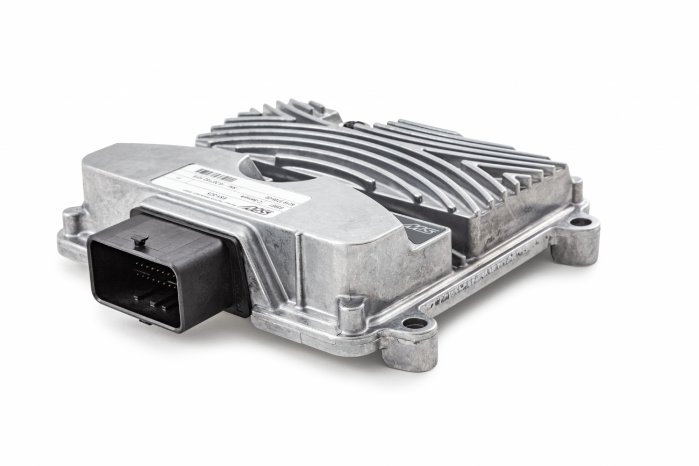The Institute of Automation and Information Systems focuses on the methods used in the automation of machines and plants. This includes hardware, software, and the structured development of intelligent mechatronic systems and automation technology. The focus is on reliability and usability, as well as human-machine interaction in engineering and plant operation. For students, this means a mix of theory and practice throughout their course.
In order to learn about, and better understand, the automation of hydraulic drive systems, the Institute has recently been equipped with two hydraulic test benches, with four workstations in total. The test benches simulate the hydraulic and position control systems of a model sized hydraulic elevator.
Head of the Institute Prof. Dr.-Ing. Birgit Vogel-Heuser explains: "The test benches are used in the bachelor and master degree courses in automation technology. They enable students to test the effects of their software directly on a very dynamic, physical system. In addition, the test stand serves to illustrate to the students that the design of the hardware system and the automation programming are in constant interaction."
HAWE Hydraulik SE, also based in Munich, provided the test stands. "As a local company, we find it important to support the TU Munich and in particular the Institute of Automation and Information Systems. It's great that hydraulics education is a fundamental part of teaching there," says Axel Schwerdtfeger, CTO at HAWE.
The four control units employed in the test stands are ESX.3cs controllers from STW, from Kaufbeuren, Germany. STW and HAWE have enjoyed a close partnership for several years. "HAWE provides the power, and we provide the intelligence for our customers' machines. Within our cooperation, each partner can access the specialized know-how of the other, and manufacturers, for example of agricultural and construction machinery, benefit from well-coordinated holistic systems acquired from a single source," says Steffen Dieterle, CEO at STW, explaining the advantages of the collaboration.
Therefore, it is only natural that STW control technology is also on board for this project at TU Munich. The ESX.3cs is a compact, robust and powerful control unit. Among other advantages, the control units are suitable for safety-oriented applications up to Performance Level PL d or Safety Integrity Level SIL 2. The application software for the ESX.3cs can be programmed in C or according to IEC 61131-3. For programming applications according to the latter standard, both logi.CAD 3 and CODESYS are available. With logi.CAD 3 - together with the runtime system Micro-Runtime-System µRTS 3 - cost-effective and powerful solutions can be implemented. One of the main advantages of logi.CAD 3 is a powerful ST (Structured Text) editor, which will eventually be used by the students of the TU Munich (As of April 2021, on-site practical courses are suspended due to COVID-19).
With logi.CAD 3, STW customers have the additional benefit that it is integrated into the STW lifecycle tool openSYDE. It can be started directly from openSYDE and through code generation, can automatically provide the configuration basis for control programming. The open approach of both openSYDE and logi.CAD 3 complement each other perfectly. In combination with the hardware advantages of the ESX.3cs, customers - and in this case students - have a powerful, flexible and user-friendly control package.

